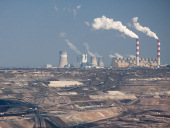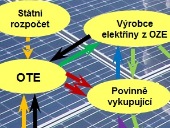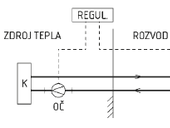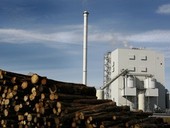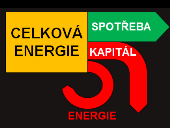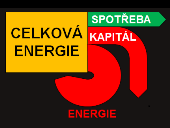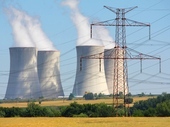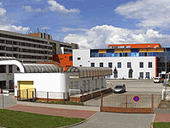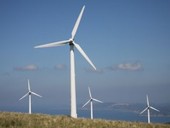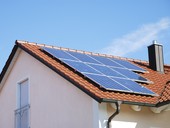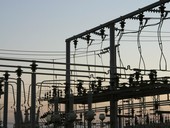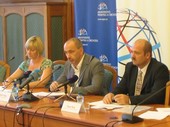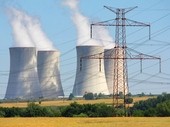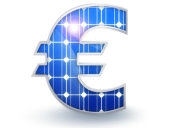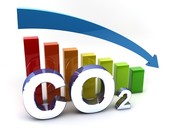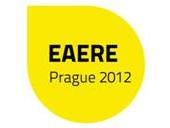Miners’ protest in front of the Office of Government at 31st October 2012 against deleting the "expropriation paragraphs" in the Mining Act and reaffirm the validity of the so-called "territorial ecological limits" in the North Bohemian lignite basin by the Czech Government turned attention of the public to context of surface mining of lignite.
Archiv článků od 3.7.2012 do 19.11.2012
So far, both the feed-in-tariff (FiT) and the green bonus (GB) was paid by locally relevant electricity distributor. From January 1st 2013 the new entity enters into the transaction - OTE (Energy Market Operator). The renewable electricity will be purchased by electricity traders instead of distributors. Newly will be introduced a new scheme - hourly green bonus. The rights of existing manufacturers are fully retained.
The paper describes the management of district heating systems with circulating pumps with variable and controlled speed. It is shown that this control method is compared to systems with circulating pumps with fixed speed very advantageous, by substantially reducing power consumption to drive the pumps.
Proposed support for heat production from RES is set for all resources defined by law to a maximum of 50 CZK / GJ (equivalent to approx 0.16 CZK / kWh) with a regular annual increase of 2% because of the anticipated inflation. Compared to the current level of support for the production of electricity from renewable sources this is about 10 times lower.
Our Western society is in crisis. It is increasingly obvious, that the crisis is not only economic, but it is more serious - a societal crisis. The post-war (still) high prosperity of the Western civilization is due to fossil fuels and bipolar world. Unfortunately the bipolar world ended with disintegration of the Soviet Union, and the world of fossil fuels is only an episode on the timeline of humanity. Even from the perspective of only two next generations, nowadays we are not able to predict what will be the life of our children and grandchildren like. Undoubtedly, for preservation of the core values of the Western civilisation (democracy, standard of living) transformation of both the energy and transport systems, and the way of life will be crucial. For this transformation we have much less time than the development of the Western society took from the beginning of the industrial revolution, because of the energy return of the remaining fossil fuel resources is permanently decreasing.
Our Western society is in crisis. It is increasingly obvious, that the crisis is not only economic, but it is more serious - a societal crisis. The post-war (still) high prosperity of the Western civilization is due to fossil fuels and bipolar world. Unfortunately the bipolar world ended with disintegration of the Soviet Union, and the world of fossil fuels is only an episode on the timeline of humanity. Even from the perspective of only two next generations, nowadays we are not able to predict what will be the life of our children and grandchildren like. Undoubtedly, for preservation of the core values of the Western civilisation (democracy, standard of living) transformation of both the energy and transport systems, and the way of life will be crucial. For this transformation we have much less time than the development of the Western society took from the beginning of the industrial revolution, because of the energy return of the remaining fossil fuel resources is permanently decreasing.
The article presents the current state of the issue of flat hybrid photovoltaic-thermal (FVT) collectors, focused on the differences between the basic types of collectors, their advantages and disadvantages. There is also presented an overview of the current global manufacturers. The article aims to highlight the problems but also the opportunities associated with different types of the hybrid FVT collectors.
Another in series of expert roundtables on energy discussed mechanisms of electricity prices creation in the Czech Republic and in Germany, the context of their current development and potential development in the coming years, including relations with the development of various renewable energy sources and energy industry in both countries.
Energy audit in the Czech Republic has twenty years history. The first decade was a period of searching, others ten years were period of legal obligations. The author is one of our first energy auditors. Features personal experience on the development of the methodology, legislation and practical application.
Building on its success in convening core parts of the finance value chain around sustainability challenges, CPSL is drawing together this work in a form that is suitable for policy makers and investors wishing to engage in the Central and Eastern European region. This project builds on the successful UK-Hungary Finance Forum held in London on 24 October 2011.
Act No. 165/2012 Coll. in its § 17 excluded all photovoltaic power plants up to 30 kWp of installed power from payment of so-called solar tax. However, based on official opinion of General Directorate of Finance, distribution system operators are continuing in collecting of the tax. According to the interpretation of law firm Šikola a partneři (Sikola and partners) the practice is in conflict with the Act. Controversy is about whether "§ 12, 17" in list of provisions of the Act, which will enter into force on the day of its publication, means "§ 12 and § 17" as it is interpreted by the law firm, or something else.
In a decision-making process – such as the one about national energy strategy – an economic assessment of alternative energy systems should account for social costs of electricity (and heat) production. This encompasses both private costs of the producer(s) as well as external costs, which are primarily associated with health and environmental impacts. Because the risks are not fully reflected in the prices of electricity, the application of alternative approaches is needed for monetary valuation of externalities. In this respect, ExternE is currently the most worked-out approach, which is already more than 20 years used and developed in the research projects for the European Commission. Fact that ExternE treats the analysis of externalities from bottom to up (bottom-up approach), makes possible to quantify marginal impacts of different energy facilities using different fuel types, in a particular place and time. At the same time ExternE enables to structure external costs estimates by type of the impact on health risks, loss of agricultural production and biodiversity, corrosion of materials and damage associated with climate change.
In practical aspects of recycling of photovoltaic modules have been relatively minor shift. It was, however, adopted a new legislation both at the European level and in the Czech Republic. Requirements of the Czech legislation in the case of photovoltaic panels are beyond the requirements of the European Directive and the Czech decree on waste electrical and electronic equipment. Operators of PV power plants (owners of photovoltaic modules) are obliged to provide financing for the recycling by 1st January 2019, even though the large-scale recycling will come into effect the earliest after 2030 and real cost of the recycling is not known recently.
More than two years ago, in mid-April 2010, modified information from the Spanish newspaper El Mundo was published by the Czech media. The original report said that some of the photovoltaic power plant in Spain have reported production even at night. In virtually all the Czech mass media an urban legend has been added to this report about lighting to the photovoltaic panels at night using electricity produced by diesel generator. The curious thing is that at current fossil fuel prices, electricity from new solar power plants is cheaper than electricity from diesel. More curious is that the urban legend was presented again, in headline news of the Czech public TV. Even though already 19th May 2010 the El Mundo published statement of the Comisión Nacional de Energía that no such fraud occurred.
Last day of July the Minister of Industry and Trade Martin Kuba hosted briefing on the planned update of the State Energy Policy. In his 40-minute presentation he presented the main points of the upcoming strategy document that aims to comments from other ministries. State Energy Policy document should be determining the direction of energy development in the next 25 years.
Description and explanation of the dynamic development of the electricity sector, which is symptomatic of an EU country and which led to significant price movements. Which component of price liberalization is influenced? What is its intensity and duration? These are questions that the following text attempts to clarify.
The USA introduced anti-dumping duty to Chinese photovoltaic panels, such a move is going in the EU too. China responded by introducing duties on solar silicon imported from the USA. The result in each case is the price increase and extension of the panels in photovoltaics being competitive with electricity from fossil sources.
This paper investigates the use of activity-explicit Marginal Abatement Cost Curves (MACC) to design abatement strategies. It shows that introducing inertia, in the form of the cost in time of available options, changes significantly the message from MACCs. With an abatement objective in cumulative emissions (e.g. emitting less than 200 GtCO2 in the 2000-2050 period), it makes sense to implement some of the most expensive options before exhausting the potential of the cheapest ones. With abatement targets expressed in terms of emissions at one point in time (e.g. reducing emissions by 20% in 2020), it can even be preferable to start implementing the most expensive options if their potential is high and their inertia is significant. Also, the best strategy to reach a short-term target depends on whether this target is the ultimate objective or there is a longer-term target. The best way to achieve Europe's goal of 20% reduction in emissions by 2020 is different if this objective is the ultimate objective or if it is only a milestone in a trajectory toward a 75% reduction in 2050. The cheapest options may be sufficient to reach the 2020 target but may create a carbon-intensive lock-in and making the 2050 target unreachable. These results show that without perfect foresight and perfect credibility of the long-term carbon-price signal, a unique carbon price in all sectors is not the most efficient approach. Overlapping sectoral objectives, such as the 20% renewable energy target in Europe, fuel-economy standards in the auto industry, or changes in urban planning, building norms and infrastructure design may be part of an efficient mitigation policy.
The paper was presented on EAERE 2012 conference.
Full version of the paper is available here: Vogt_WPS5803.pdf
On Saturday June 30th 2012 was closed 19th Annual Conference of the Association of Environmental Economists EAERE 2012 at the University of Economics in Prague. During the closing ceremony the awards for the best poster, the excellent publication and the most important practical achievement was forwarded. The main plenary lecture was focused to problems of modeling market and environmendal issues together.
zpět na aktuální články
